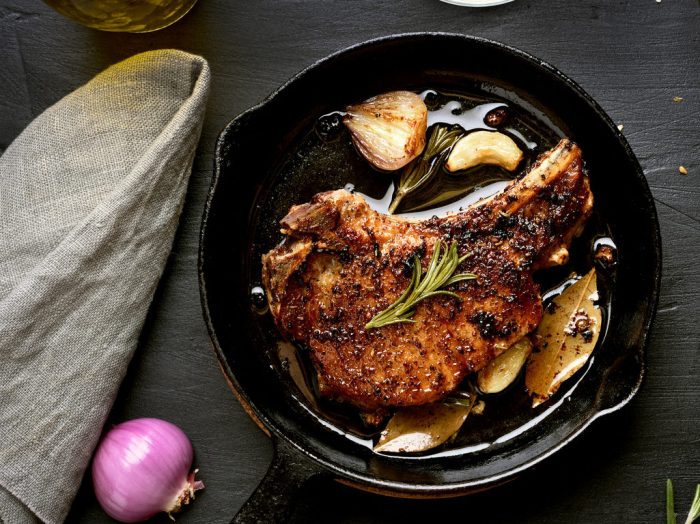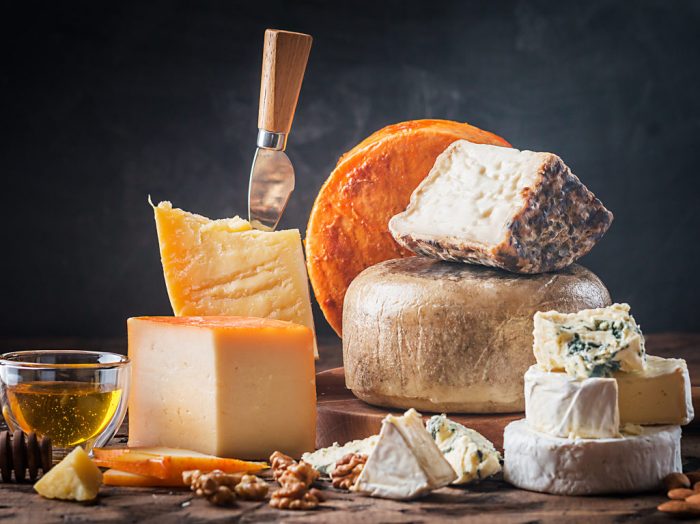A new, well-researched book comes forward with a theory that eating according to your hormones is an unexplored avenue for weight loss and maybe even reducing anxiety. Let’s find out why.
Have you been feeling exhausted, drained, and fatigued? Have you been retaining water since forever? Are you having problems losing weight? Then maybe you should try eating according to your hormones, says Magdalena Wszelaki, who recently published this cookbook called [amazon_textlink asin=’0062643134′ text=’‘Cooking for Hormone Balance’’ template=’ProductLink’ store=’xdeli-20′ marketplace=’US’ link_id=’f6fe5c16-5458-11e8-a5ae-6bcc65e396a1′]. It features 125 recipes that have one purpose: to promote healthy hormone levels.
Wszelaki starts from common knowledge: the fact that a good, balanced diet is an integral part of our well-being: physical, psychological, and it related to sleep patterns and energy levels. She was diagnosed with Hashimoto’s disease in 2008, an autoimmune disease (where her immune system attacks her thyroid) the most common cause of hypothyroidism in the United States. Inflammation caused by the disease often leads to an underactive thyroid gland. Wszelaki also suffered from bad acne for a large part of her life.
https://www.instagram.com/p/BiCnPAhhwU2/?taken-by=hormonebalance
An idea born of personal struggles
The author decided to research her condition as thoroughly as possible and find practical solutions for her well-being. The first step was removing ‘inflammatory’ foods such as dairy, soy, and gluten from her diet, which she claims cleared her skin after just a few weeks. Six months later, her Hashimoto’s symptoms also improved, according to her.
Wszelaki talked to The Independent newspaper about her book. “People say ‘you are what you eat’, but the truth is that you are what you can absorb,” she said. What she means is that when the lining of the small intestine is inflamed, it cannot properly absorb nutrients anymore. And there are seven food groups that scientists consider ‘inflammatory’: gluten, dairy, eggs, soy, corn, peanuts, and nightshade vegetables (potatoes, tomatoes, peppers, and aubergine). If you overdo it with these items, you might have trouble absorbing nutrients. Even if most of these foods are considered to be pretty healthy.
https://www.instagram.com/p/BgZUeeonR1Z/?taken-by=hormonebalance
Eating according to your hormones and inflammation
Wszelaki sees a clear connection between eating according to your hormones and inflammation. For one, the latter makes your hormone levels fluctuate because the state doesn’t leave your body too receptive to your usual hormone suspects.
Of course, your body parameters matter a lot in this instance. It depends on what kind of hormones you’re high and low on. Wszelaki exemplifies that by talking about estrogen. A high estrogen level could lead to hair loss, facial hair, water retention, and cellulite. While someone with low estrogen levels could have troubles with fatigue.
Or another example. You know about cortisol, also known as the stress hormone. Well, a high level of that in your system can make you gain weight. But you don’t want too little of it, because that has consequences like poor sleep, depression, and anxiety.
What are the solutions?
It’s all about trying and testing all of those foods, Wszelaki recommends. Because all bodies are different, you might be affected by different combos of those foods. First, you would have to eliminate them all from your diet and reintroduce them, one by one, to see which one or ones affect you the most. Keep a journal of that.
Wszelaki just wants to make sure everybody knows that eating according to your hormones is not an actual diet. It’s just a set of recipes that help you include foods that help with inflammation in your meal plan. The best ones? Citrus fruits, salmon, walnuts, butter, cruciferous vegetables, coconut oil, and berries.
https://www.instagram.com/p/BfY6nHejT4Y/?taken-by=hormonebalance






